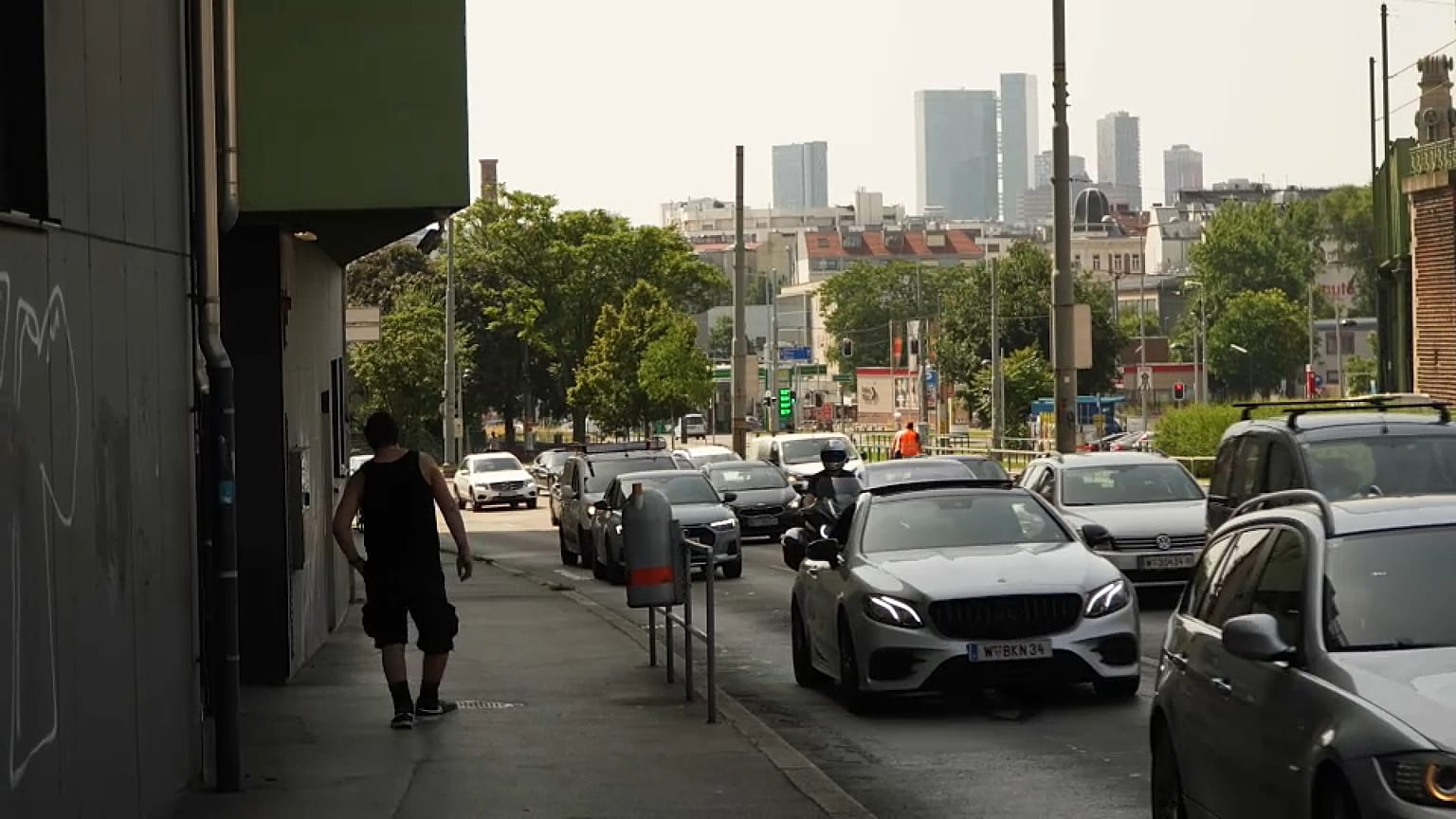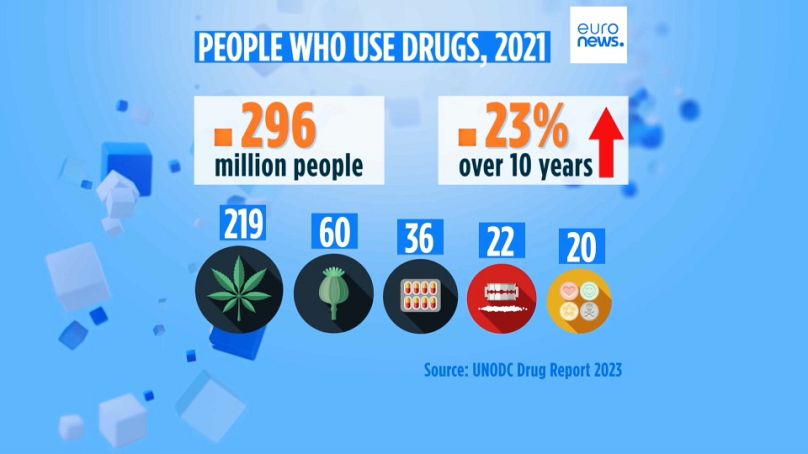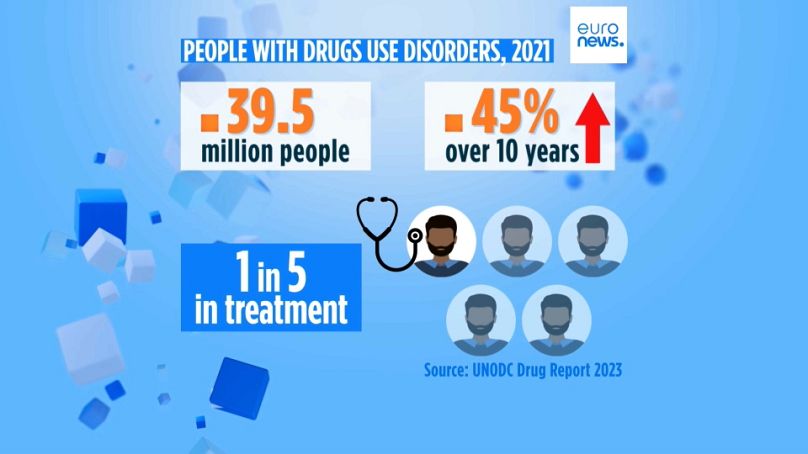A new UN report said the number of people suffering from drug use disorders had skyrocketed in the last 10 years.
Drugs are getting cheaper, addicts told Euronews, stating that more people were selling opiates on the streets of Vienna.
"I'm set on morphine, a side use here and there," one man said, requesting to remain anonymous while speaking to Euronews.
"In Vienna, there are more and more people selling opiates. It's already getting out of hand. The drugs are getting cheaper and cheaper," he added.
Not only are they getting cheaper, but drug use is going up.
That's according to a United Nations Office on Drugs and Crime (UNODC) report released on Monday that states that the number of those who inject stimulants is 18 per cent higher than previously estimated as "treatment services and other interventions fall short".
In Vienna, there has been a significant increase in drug-related deaths.
Another anonymous morphine addict said he started taking drugs at the age of 13.
"The new people who are just starting to take drugs, I think they underestimate it, in fact, they underestimate it a lot," he told Euronews, also speaking anonymously.
"So the young people, they consume and consume and they don't even know what they are consuming".
Increasing drug users and drug-use disorders
Nearly 300 million people globally used drugs in 2021, according to the latest UNODC World Drug Report, representing an increase of 23 per cent in the last decade.
The most common addictive substance is cannabis, followed by opiates, amphetamines, cocaine and ecstasy.
New data shows that 13.2 million people injected drugs in 2021 - a number that's 18 per cent higher than previously estimated.
There are also nearly 40 million people who suffer from drug use disorders, a number that has skyrocketed by 45 per cent in the last ten years.
Only one in five people are in treatment, with the UN report stating that treatment access must be prioritised globally.
"We are witnessing a continued rise in the number of people suffering from drug use disorders worldwide, while treatment is failing to reach all of those who need it," said UNODC Executive Director Ghada Waly in a statement.
"Meanwhile, we need to step up responses against drug trafficking rings that are exploiting conflicts and global crises to expand illicit drug cultivation and production, especially of synthetic drugs, fueling illicit markets and causing greater harm to people and communities".
'Illicit drug trade and synthetic drugs'
The illicit drug trade is "exacerbating additional criminal activities" and damaging the Amazon rainforest, the UNODC report states.
In the Sahel, meanwhile, the drug trade "finances non-state armed and insurgency groups".
Meanwhile, the "cheap, easy, and fast production of synthetic drugs" has transformed illicit drug markets.
"Criminals producing methamphetamine – the world’s dominant illegally manufactured synthetic drug – are attempting to evade law enforcement and regulatory responses through new synthesis routes, bases of operation, and non-controlled precursors," the UNODC said.
Fentanyl, a potent synthetic opioid drug, also has drastically changed the market in North America with around 90,000 opioid-related overdose deaths involving illegally manufactured fentanyl, the report added.
The good news is that more people can now be reached said Angela Me, the UNODC's Research and Trend Analysis chief.
"We've seen actually with the COVID pandemic, many countries have adopted innovative ways in order to reach the drug users with the services," Me said.
"This innovation now proves to be really increasing also the number of people that can be reached and even new patients are coming to treatment. So that gives a sign of hope," Me added.




















